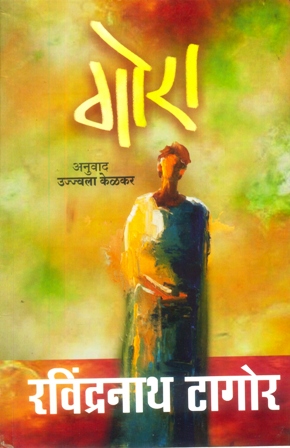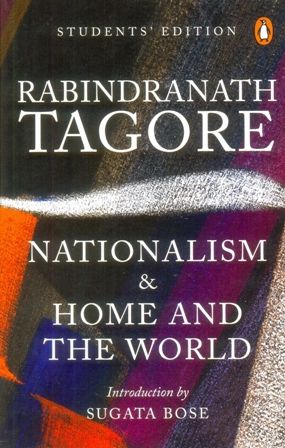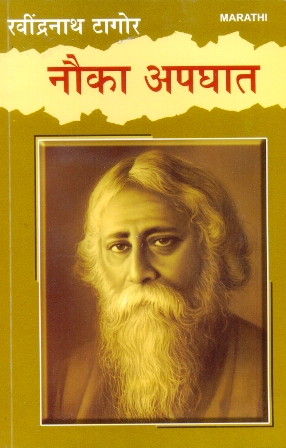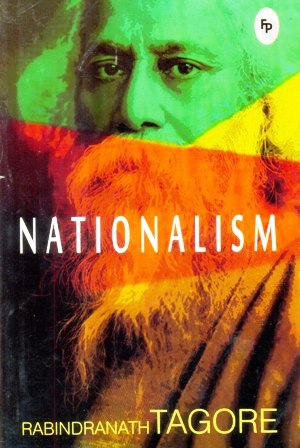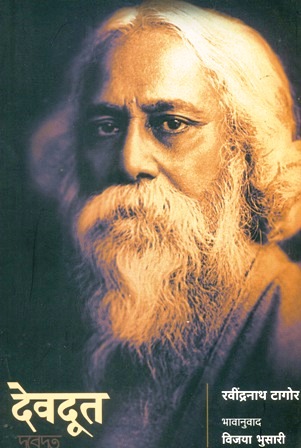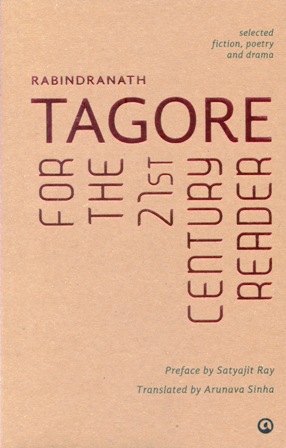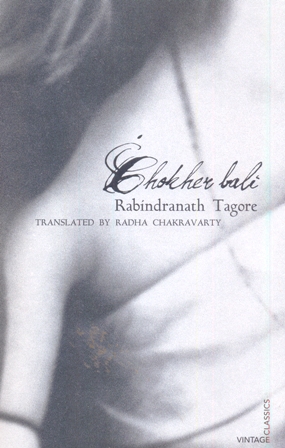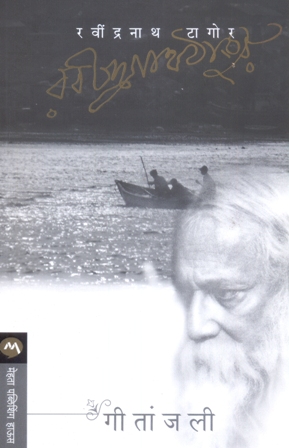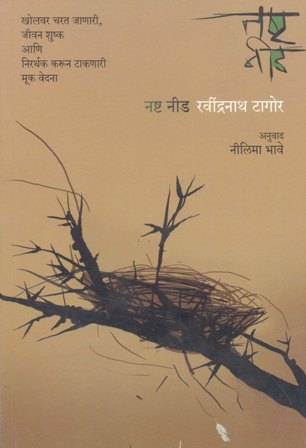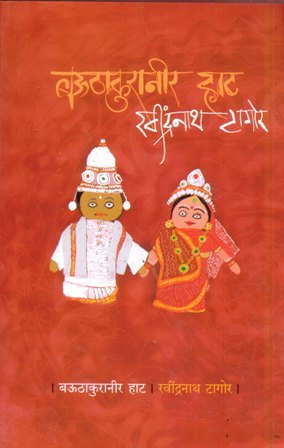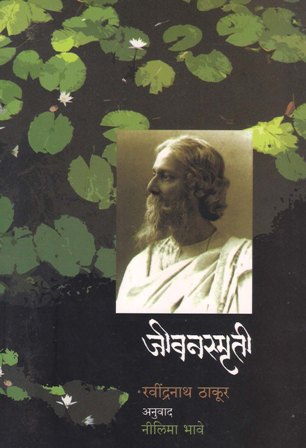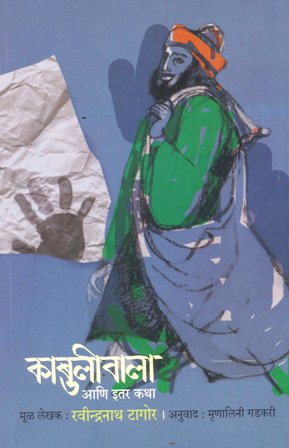-
Nationalism and Home and the World
Combining two classic texts by Rabindranath Tagore, this special edition features a new Introduction by eminent scholar Sugata Bose. Nationalism is based on Tagore's lectures, warning the world of the disasters of narrow sectarianism and xenophobia. Home and the World is a classic novel, exploring the ever-relevant themes of nationalism, violent revolution and women's emancipation.
-
Nationalism
“And yet I will persist in believing that there is such a thing as the harmony of completeness in humanity . . .” A compendium of lectures delivered by Tagore during the First World War and the Swadeshi movement in India, Nationalism emphasizes Tagore’s political and philosophical views on human understanding and its weakness for power and material hoardings. Packed with erudition and analysis, it expounds the idea of a moral and spiritual growth for human welfare. The lectures—written in a lucid, metaphoric, poetic prose—are loaded with a piercing vision of the future and are a critique on his views on spirituality and humanity. Tagore was a farsighted visionary, whose forebodings on the lack of human values and the political role of the nation and the state in the East and the West are well articulated in these lectures. Tagore discusses the revival of the East and the challenge it poses to the Western reign, calling for a future based on tolerance, a future where tradition and modernity are balanced. Tagore’s Nationalism holds much relevance in today’s environment of violence and intolerance.
-
Rabindranath Tagore for the 21st Century Reader
Rabindranath Tagore is the second most popular literature laureate of all time (after John Steinbeck) according to the official website of the Nobel Prize. Writers ranked below him on the popularity chart include Gabriel Garcia Marquez, Pablo Neruda and Ernest Hemingway. Tagore won the prize in 1913, but a hundred years later readers continue to flock to his work because it possesses all the qualities essential to keep it fresh and relevant despite the passage of time big ideas, complex themes, stylistic brilliance, a deep engagement with nature, beauty, family, love, passion and above all, a profound timelessness. Keeping the 21st century reader firmly in mind, this volume brings together some of Tagores most celebrated works. In The Home and the World, perhaps his most popular novel, intricate issues of devotion to the motherland and to the family are explored through a story of two friends and a woman coming into her own. The Monk-king, with its devious priest and marauding armies, is also about the power of sacrifice and loyalty. In The Laboratory, Tagores last short story, he creates a world that is materialistic and amoral with a light yet ruthless touch. In poems like Camilla and An Ordinary Girl he describes the sadness of unrequited love, his drama. Chandalika, is about the angst and helplessness of being in love with an unattainable ideal. Brilliantly translated by Arunava Sinha, this selection of Rabindranath Tagores fiction, poetry, lyrics and drama is evidence of his position as one of the worlds greatest writers and reinforces the enduring nature of his words, emotions and beliefs.
-
Chokher Bali
Tagore elaborately records early twentieth-century Bengali society through his central character, a rebellious widow who wants to live a life of her own. Tagore said about the novel, I have always regretted the ending'. Chokher Bali explores the forbidden emotions unleashed when a beautiful young widow enters the seemingly harmonious world of a newly married couple. This path-breaking novel by Rabindranath Tagore weaves a tangled web of relationships between the pampered and self-centred Mahendra, his innocent, childlike bride Asha, their staunch friend Bihari, and the wily, seductive Binodini, whose arrival transforms the lives of all concerned. Radha Chakravarty's translation brings the world of Tagore's fiction to life, in lucid, idiomatic prose. About the Author Rabindranath Tagore (1861 - 1941) is a major figure in Indian and world literature. Born into a privileged, progressive family during the Bengal Renaissance, he started writing when he was very young. In 1913, he became the first Asian to win the Nobel Prize. Tagore was a versatile writer who produced masterpieces in multiple genres, including autobiography, fiction, poetry, drama, satire, humour, letters and travel writing. He was also an accomplished artist. He composed the national anthems of India and Bangladesh. Although he did not engage directly in politics, he felt deeply about social and political issues. In 1919, he rejected the Knighthood conferred upon him by the British Crown, in protest against the massacre at Jallianwallah Bagh. Tagore was the founder of Visva-Bharati, a university based in Santiniketan in Bengal, where students were offered an eclectic international education, in an atmosphere in close harmony with nature. Some of his best known works are the poems of Gitanjali, novels such as Chokher Bali, Gora, Ghare Baire and Char Adhyay, plays such as Dakghar, Raktakarabi and Arupratan, the songs collected in Gitabitan, dance dramas like Chandalika and Chitrangada, and volumes of prose such as Sadhana and Religion of Man.
-
Nashta Need (नष्ट नीड)
चारू, आदित्य आणि शशांक हे आपापल्या जागी एका विशिष्ट परिस्थितीत सापडले आहेत. त्या परिस्थितीत त्यांचा मानसिक कोंडमारा होतो आहे. या कोंडमा-यातून बाहेर पडण्याचा मार्ग त्यांना त्यांच्या जवळच्याच व्यक्तींच्या सहवासात सापडतो. हा मार्ग आपल्याला नक्की कुठे नेणार आहे, याच भान येण्याआधीच त्यांनी या मार्गावर चालायला सुरूवात केलेली असते. त्यांच्या या, त्यांच्या स्वाभाव धर्मानुसार पुढे जाणा-या वाटचालीचे टप्पे टागोर या कथानकानमधून

